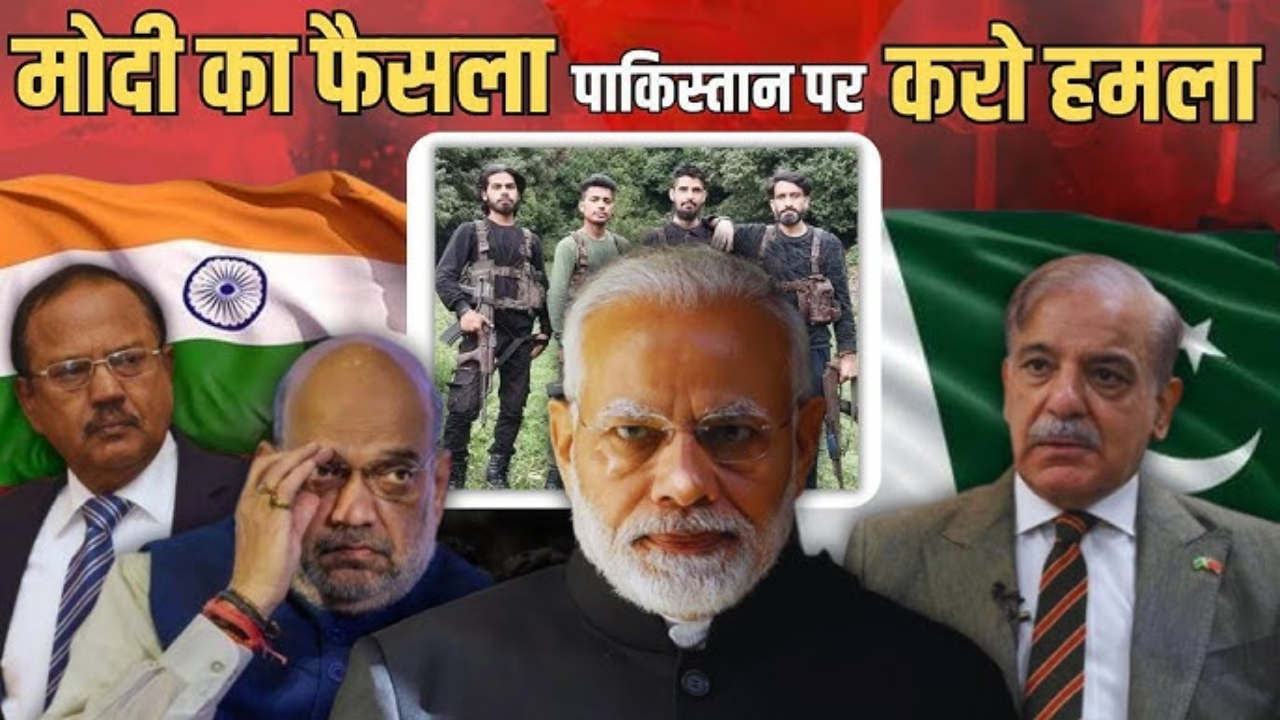“As Tensions Rise, India Demands Answers While Modi Weighs His Next Move”
Kashmir: Nation Grief After a Violent Outburst. On that day, a peaceful tourist town in Kashmir turned from a place of fun and happiness into a scene of horror, where 26 men were killed. It is considered one of the worst attacks on civilians in that region in many years.
According to reports, the attackers forced the victims to say an Islamic prayer to prove their religion, and anyone who couldn’t say it properly was shot. This cruel act deeply shocked people across India, with citizens from at least 15 states mourning the loss.
With its brutal violence and the way it involved people from different regions, the tragedy brings back painful memories not just in the Kashmir Valley but across all of India.
Actions Speak the Words of Modi, Who Faces Beautiful Balancing
Prime Minister Narendra Modi firmly spoke out against the attack and assured the nation that the people behind it would be punished. According to him, “Those who did this will pay for this crime and India will go for and mop up. If it was a strong statement, the subsequent actions were under active scrutiny.
Analysts maintain that Modi has to balance public anger with the possible provocation of more conflict, which in part surrounds the denial from Pakistan of any involvement, while India claims that there is clear evidence of cross-border links.
Kashmir Shows Uncommon Unity in Grief
For this, Kashmiris seemed to come out into the public eye and candlelight marches declaring, “United in Grief,” at one of the very rare times. Such an emotional backlash from the Valley, where relations with the Indian government have often been strained, expresses the size of the disaster.
Currently, India and Pakistan are under increased tension due to regularly rising anxieties
The recent war attack creates a new pressure on already fragile relationships between the two countries. The group that attacked India- the Resistance Front- has been said to have ties with Pakistan-based Lashkar-e-Taiba.
India has been very bold enough to take that decision to suspend the Indus Waters Treaty, one of the most crucial treaties through which river waters between the two countries have been shared for years. In turn, it has suspended its participation in the Simla Agreement, which has been driving the peace process between the two nations for ages.
The public wants action, but the government knows it has to move carefully.
People across India are heartbroken and angry, calling for strong and immediate action in response to the tragedy. Nuclear nations, however, require caution. Yet, there is a pressing need to show strength while avoiding risks of escalation for wider conflict.
This stage at which India currently stands is truly crucial. It is a crossroads where any step taken will lay the pathway for these three to come into terms of peace, diplomacy, and national security.
